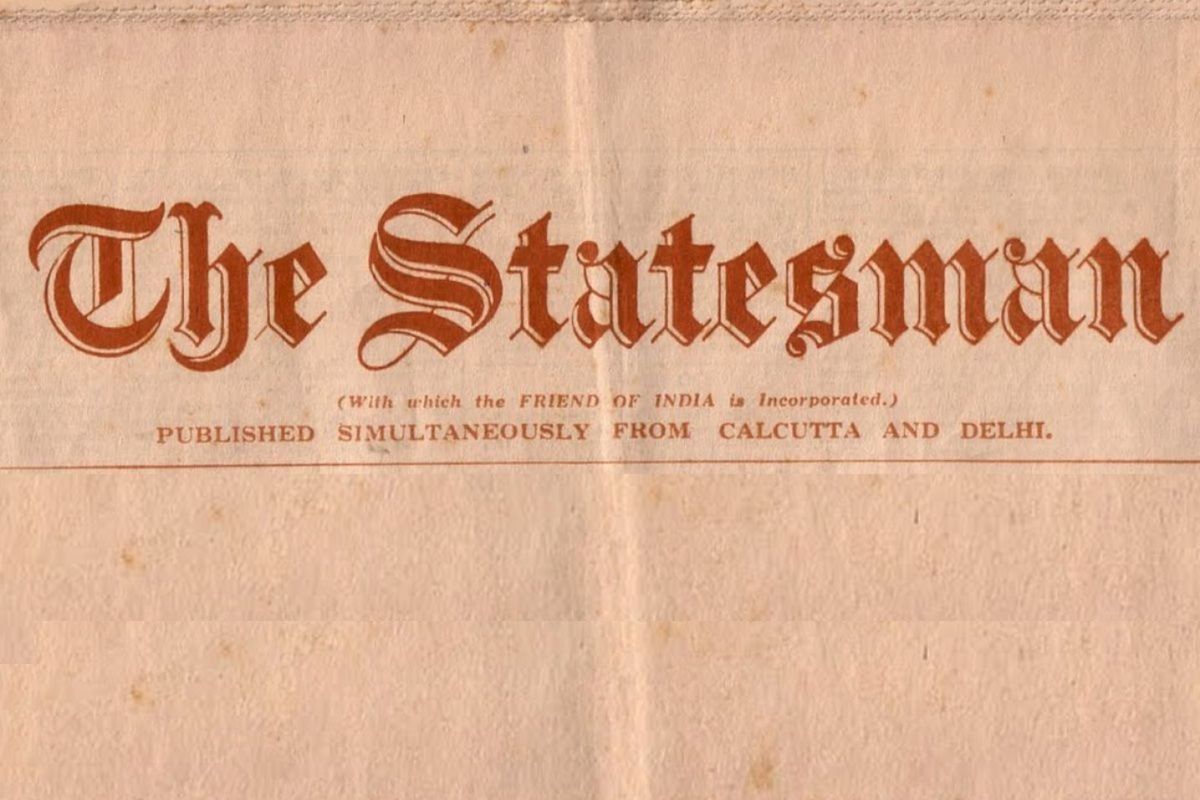Air India Plane Crash: Aviation Expert Amit Singh discusses investigating the cause and restoring public confidence
Captain Amit Singh, founder - Safety Matters Foundation, is a former head of airline flight operations and safety.
On this day a century ago, these were some of the news items The Statesman readers got to read about India and the world.
Statesman News Service | New Delhi | November 2, 2019 11:55 am

OCCASIONAL NOTE
Daylight saving has become a highly controversial issue in the United States. In passing the Agricultural Bill recently the House of Representatives added to it a rider repealing the Daylight Saving measures. The President, who is apparently a strong believer in daylight saving, vetoed the Bill. This had the awkward effect of holding up the salaries of the employees of the Agricultural Department, many of whom were reduced to selling their Liberty bonds, and to other makeshifts, owing to the non-receipt of their wages. Accordingly the Bill was reintroduced, in the hope that this time it would be allowed to go through. The Republicans, however, once more brought up an antidaylight saving rider, and pressed it with determination, until it was explained to them that by taking this action they would bring about a crisis in the Agricultural Department, whose employees could not very well be expected to work for nothing. It was further explained to them that President Wilson would assuredly veto the Bill again if such a rider were tacked on to it. Apparently the Republicans were obliged to admit the force of these contentions, for after a long debate they finally withdrew the obnoxious rider, and thus saved the Agricultural Department officials from starvation. The anti-daylight saving sentiment is still strong on Congress, however, and a Bill repealing the Daylight Saving measure is to be brought in separately.
Advertisement
FOOTWEAR IN BUDDHIST PAGODAS
Advertisement
RANGOON, NOV 1
The Local Government publishes a length resolution dealing with the question of shoe wearing at Pagodas. The matter was brought to the notice of the Government by a memorial from the All Burma Buddhist Council asking that the letter of May, 1918, might be cancelled and that the rule against footwear may be recognised by the Government. The resolution deals with the history of the question, which so far as Rangoon is concerned, was until lately settled on the basis that those persons whose creed required them to show respect by taking of their shoes should do so on visiting a pagoda. In 1916 the first memorialist raised the question at Prome. Subsequently a meeting was held in May 1918 when eleven resolutions were passed on the subject. The resolution then refers to the sudden and savage attack on a party including four ladies who were wearing shoes on the Emdawya Pagoda platform.
SURPLUS TEXTILE STOCKS
SIMLA, NOV 1
The Government of India have decided to set up an organisation for the disposal of surplus textile stores. This organisation will be under the administrative control of Lieutenant-Colonel H.M. Alexander, Controller (Textiles), assisted by Mr. R.W. Target, Deputy Controller (Textiles). Mr. N.B. Saklatwalla has been appointed honorary adviser to the Indian Munitions Board and will have his office in Bombay. He will assist the Board with his advice in regard to the disposal of surplus stocks generally, and will exercise certain special functions in respect of the Bombay Agency. Captain D. Riley, at Bombay, and Lieutenant F.M. Rockley, at Delhi, will act as selling officers, and will be designated Assistant Controllers (Textiles). Suitable offices for these selling officers have been sanctioned by the Government of India.
WORLD S SCULLING CHAMPIONSHIP
The contest for the world’s sculling championship took place today from Putney to Mortlake, for five hundred pounds a side. Alf Felton (Australia) beat Ernest Barry, the holder, easily by eight lengths. There was a strong north-westerly wind, and the river was very rough. Felton was lucky in winning the toss, and he chose the Middlesex side, and then hugged the Middlesex shore during the race, while Barry kept to the centre of the river, where he shipped a great amount of water. Before he passed Craver steps his boat was water-logged. Time: 25 minutes 40 seconds.
THE SOUTH AFRICAN COMMISSION
DELHI, NOV 1
Mr. M.K. Gandhi, who is now on a short visit to Delhi, was interviewed by a representative of the Associated Press of India today on the subject of the South African Commission. Asked what he thought of Mr. Montagu’s announcement, he said:- It is a matter of very great regret that Mr. Montagu’s message to the Viceroy so materially alters the position. I do, however, feel that any agitation insisting upon the appointment to the commission of Indian representatives may damage our case which is so overwhelmingly strong. If a representative like Mr. Sastri is appointed along with Sir Benjamin Robertson to put before the South African Government and the forthcoming commission the Indian case, it would be the next best thing. In my opinion our efforts should be concentrated upon securing a proper reference to the commission in place of the very narrow one we are led to believe is likely to be suggested by the Union Government.
Advertisement
Captain Amit Singh, founder - Safety Matters Foundation, is a former head of airline flight operations and safety.
The country has a failed defence and foreign policy and is floundering here and there like a beggar,'' he said in an interview with The Statesman.
Sawant is part of the Parliamentary Standing Committee on External Affairs and was among the MPs who were briefed by Foreign Secretary Vikram Misri on Operation Sindoor
Advertisement
